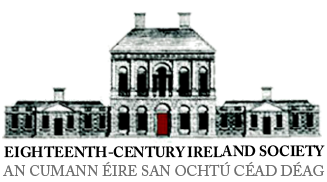Type: Article
Doyle, Thomas. ‘Jacobitism, Catholicism and the Irish Protestant Elite, 1700-1710’, Eighteenth-century Ireland/Iris an dá chultúr, Vol. 12 (1997), pp 28-59.
In the period from 1700-1710, formal and informal charges of Jacobitism against members of the Irish protestant élite were relatively common. This affected protestant churchmen, judges, students, Tories, and gentry particularly the latter and especially if they were recent converts. According to Doyle, Jacobitism was a convenient brush with which to tar ones enemies, particularly those who may have had genuine religious and conscientious qualms about the brushing aside of high Anglican nostrums of passive obedience and the divine right of kings. The distrustful nature of Irish protestant attitudes toward fellow protestants was in part due to the substantial numbers of protestant gentry who expressed both ambiguous attitudes towards the Williamite victory and ambivalence to the new Williamite regime. Doyle concludes: What appeared as Jacobitism was in a fact a mixture of realism, distaste for harsh and possibly counter-productive measures and political opportunism.
